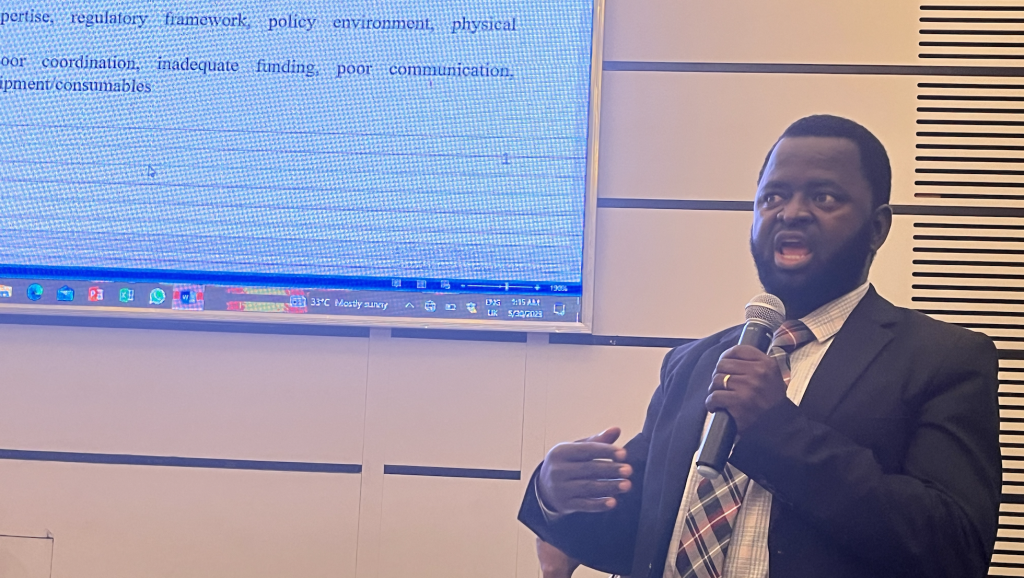By Albert Oppong-Ansah, GNA
Accra, May 30, GNA- A Scientist is recommending the utilisation of the potentials of Genome Editing (GEd), a scientific technology, to develop drought tolerance seed varieties to protect crops from dry spells.
With the observed widespread dry spell of 50 days likely to occur after the starts of the rains in middle belt and northern regions, GEd, technology could be used to alter for example rice seed variety to withstand the dry spell.
GEd could be described as a technology similar to conventional breeding and usually conducted by agriculturists to take out an undesired trait in a crop and replace it with a desired one from the same crop family.
Dr Francis Djankpa, Molecular and Cellular Biologist, and Department Head of Physiology School of Medical Sciences, University of Cape Coast, who made the recommendation in an interview with the Ghana News Agency said climate change had contributed greatly to the increased dry spell period.
“In both natural ecosystems and agricultural settings, plants and animals are being forced to contend with novel conditions that change more quickly than their pace of adaptation,” he said studies had shown.

“Rising temperatures and shifting precipitation regimes are drastically altering the biological landscape, resulting in species migration, invasion, and extinction.”
Dr Djankpa said GEd could aid in the adaptation of organisms to climate change or help mitigate the effects of climate change on agriculture.
Dr Charles Nyaaba, Head of Programmes and Advocacy of Peasant Farmers Association of Ghana told GNA that preseason assessments pointed to a decrease in production because of a number of issues especially dry spells.
He said, “Farmers lost nearly half of the cereals they cultivated.” Statistics from the Food and Agriculture Ministry show that Ghana’s maize and soybean productivity for the 2020, 2021 and 2022 cropping season dipped from the 2019 farming season due to prolonged-dry spell.
Mr Kwamena Quaison, the Director of Science and Technology at the Ministry of Environment Science, Technology and Innovation said the country’s science policy’s aim is to ensure that science drives all sectors of the economy.
“The positive role of Science Technology and Innovations (STI) like GEd technology is better felt in the Agricultural Sector. For this reason, STI will ever remain a critical enabler of agricultural transformation and sustainable development.”
He said STI would continue to play a critical role towards improving agricultural production and productivity, fostering resilience in agricultural food systems, and improving farmers’ health and wealth.
This report is produced in fulfilment of the UNESCO & CIJ London Climate Change in News Media project facilitated by the Centre for Journalism Innovation and Development
GNA